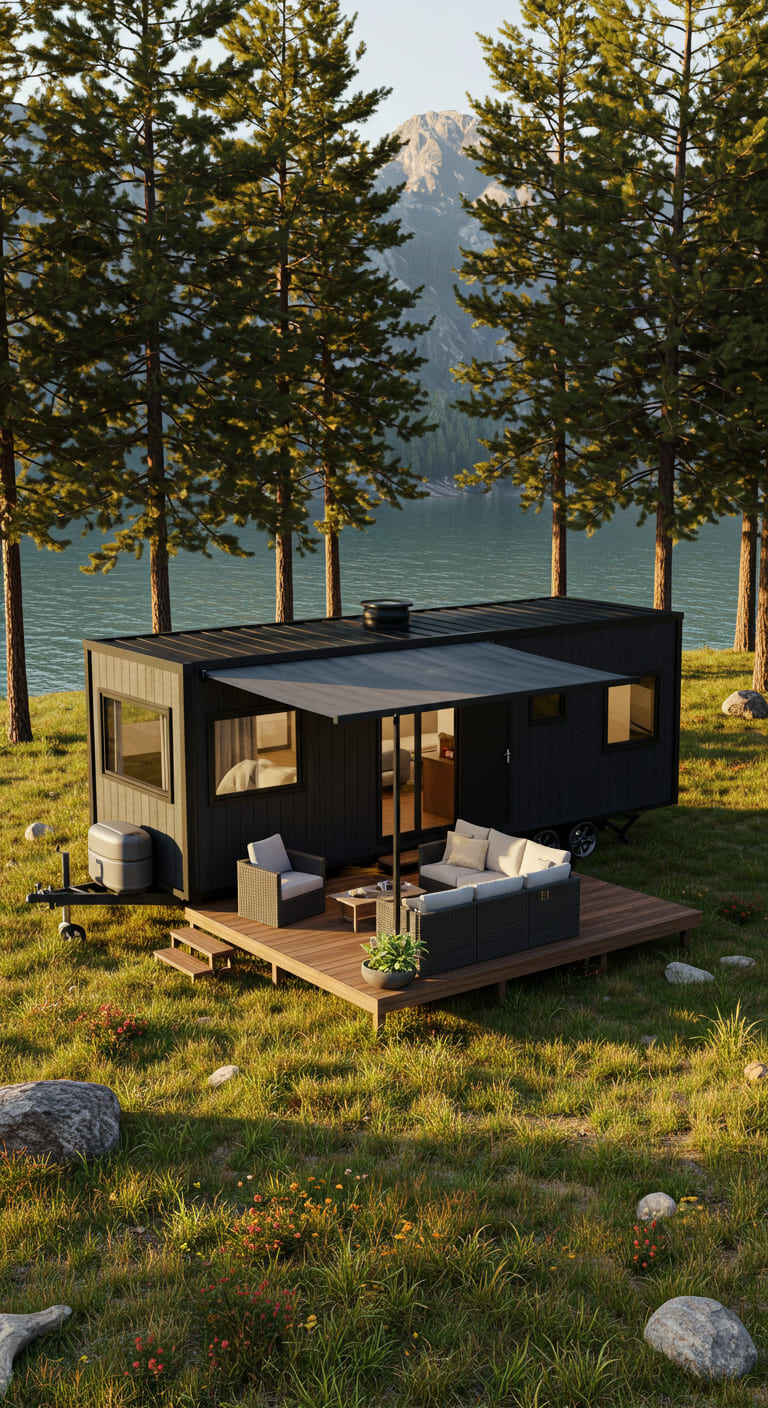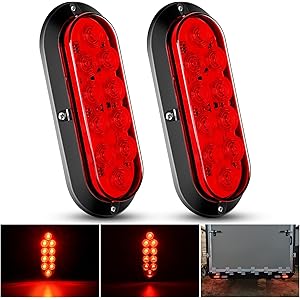As someone who has navigated the world of affordable housing options, I often find myself comparing trailer homes and mobile homes. These terms are frequently used interchangeably, but there are key differences that can impact your living experience, investment potential, and lifestyle choices. In this article, I will explore these differences in detail, providing insights, examples, and case studies that will help you make an informed decision.
The Basics: What Are Trailer Homes and Mobile Homes?
To start, let’s clarify what we mean by trailer homes and mobile homes. At their core, both types of housing are designed to be transportable, but they have evolved in different ways over the years.
- Trailer Home: This term generally refers to older, less modern forms of portable housing. Trailers were often made of aluminum and were primarily designed to be moved frequently.
- Mobile Home: Mobile homes, particularly those built after 1976, are constructed under strict guidelines set by the U.S. Department of Housing and Urban Development (HUD). These homes are typically more durable and better equipped than older trailers.
Understanding these definitions is crucial as they set the stage for the distinctions I will delve into later in the article.
Key Differences Between Trailer Homes and Mobile Homes
As I explored the nuances between trailer homes and mobile homes, I discovered several significant differences that influence everything from construction quality to financing options. Here are the most notable distinctions:
1. Construction Standards
One of the most critical differences lies in construction standards. Since 1976, mobile homes have been subject to HUD regulations that ensure they meet specific safety, quality, and energy efficiency standards. Here’s what I found:
- Materials: Mobile homes are typically built with higher-quality materials, including better insulation and structural components.
- Design: Many mobile homes are designed with modern aesthetics in mind, offering a range of floor plans and customizations.
- Safety Features: Homes built after 1976 include safety features such as smoke detectors and better electrical systems.
2. Mobility and Setup
While both trailer homes and mobile homes can be transported, their mobility differs significantly. I learned that:
- Trailer Homes: Often designed for frequent relocation, trailer homes may not have the same level of infrastructure or support systems as mobile homes, making them less stable when set up.
- Mobile Homes: Typically, these homes are designed for long-term placement, often requiring a foundation or skirting that provides stability and insulation.
3. Financing Options
Financing is another crucial aspect to consider. I discovered that lenders view trailer homes and mobile homes differently due to their construction standards and perceived value:
- Trailer Homes: These often qualify for personal loans, which can carry higher interest rates and less favorable terms.
- Mobile Homes: Many lenders offer mortgages for mobile homes, providing lower interest rates and longer repayment terms, especially for homes that meet HUD standards.
4. Depreciation vs. Appreciation
Understanding how trailer homes and mobile homes appreciate or depreciate over time is essential for making a sound investment. My research revealed:
- Trailer Homes: These homes often depreciate quickly, similar to vehicles, due to their construction quality and age.
- Mobile Homes: While they can also depreciate, well-maintained mobile homes in desirable locations may appreciate in value, particularly if they are on owned land.
5. Community and Zoning Regulations
The community where you choose to live can significantly impact your experience in either a trailer home or a mobile home. Here are some insights I gathered:
- Trailer Home Communities: Many trailer homes are located in parks that may have restrictive rules and less desirable living conditions.
- Mobile Home Communities: These often offer better amenities and community support, including access to services and recreational facilities.
The Financial Aspect: Cost Analysis
When making a housing decision, cost is always a consideration. From my perspective, understanding the financial implications of both options is vital. Here’s a breakdown:
Initial Purchase Cost
Trailer homes generally come with a lower price tag, making them more accessible for individuals seeking affordable housing. However, the upfront cost of mobile homes might be higher due to better construction quality and modern features.
Ongoing Costs
While trailer homes may have lower initial costs, they can lead to higher maintenance and utility costs over time due to inefficiencies. In contrast, mobile homes, with their better insulation and safety features, might result in lower ongoing expenses.
Insurance
Insurance costs for mobile homes can also be more favorable, as they are often viewed as more stable and secure. In contrast, insuring a trailer home may come with higher premiums due to perceived risks.
Real-Life Experiences: Case Studies
To truly understand the impact of these differences, I reached out to individuals who have experience living in both trailer homes and mobile homes. Their stories provided valuable insights.
Case Study 1: Sarah’s Trailer Home Journey
Sarah lived in a trailer home for over a decade. She loved the affordability but often faced issues with maintenance and safety.
- Frequent repairs due to poor insulation.
- Challenges with finding a safe community.
- Ultimately, she decided to invest in a mobile home for better quality and community support.
Case Study 2: John’s Mobile Home Investment
John purchased a mobile home after doing thorough research. He was impressed by the quality and community amenities.
- Lower utility bills due to effective insulation.
- Access to community facilities, enhancing his lifestyle.
- His home appreciated in value, providing a good return on investment.
Environmental Considerations
As someone who values sustainability, I think it’s important to consider the environmental impact of trailer homes versus mobile homes:
- Construction Materials: Mobile homes tend to use more sustainable materials and energy-efficient designs.
- Energy Efficiency: Modern mobile homes often come equipped with energy-efficient appliances and insulation, reducing carbon footprints.
Conclusion: Making an Informed Decision
In conclusion, the differences between trailer homes and mobile homes are significant and should not be overlooked. From construction standards to financial implications, each option presents unique advantages and challenges. As I’ve shared through my exploration and the experiences of others, making the right choice depends on your lifestyle, budget, and long-term goals.
Ultimately, whether you choose a trailer home or a mobile home, it’s essential to do thorough research and consider your unique needs. I encourage you to weigh the pros and cons carefully and engage with communities that can provide support and information.
FAQ
What is the main difference between a trailer home and a mobile home?
The main difference lies in construction standards and regulations. Mobile homes are built under HUD regulations, ensuring better quality and safety compared to older trailer homes.
Are mobile homes a good investment?
Yes, well-maintained mobile homes can appreciate in value, particularly if located in desirable areas. They often provide a more stable investment compared to trailer homes.
Can I finance a mobile home like a traditional house?
Yes, many lenders offer mortgage options for mobile homes that meet HUD standards, which can come with favorable terms compared to financing a trailer home.
If you found this information helpful, I invite you to share your thoughts in the comments below! Additionally, don’t forget to sign up for our newsletter for more insights on housing options, and share this article with friends and on social media. Your engagement helps us provide valuable content to many others on their housing journey!
Nilight 6 Inch Oval Red LED Trailer Tail Light Surface Mount 2PCS 10 LEDs Waterproof Stop Brake Turn Trailers Lights for Truck RV Boat Bus Lorry Camper Van Caravan
$18.99 (as of November 15, 2025 07:52 GMT -03:00 - More infoProduct prices and availability are accurate as of the date/time indicated and are subject to change. Any price and availability information displayed on [relevant Amazon Site(s), as applicable] at the time of purchase will apply to the purchase of this product.)
Sign up for our newsletter and stay up to date with exclusive news
that can transform your routine!





